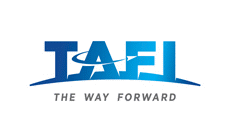The Best Day to Buy Airline Tickets
Airlines Reporting Corp., which processes tickets for travel agencies and handles about half of all tickets sold, tallied up ticket sales. Over a 19-month period ending in July, 130 million domestic and international round-trip tickets worth $94 billion showed the lowest average price, of $432, was on Sunday. At $439, Saturday’s average is also lower than Tuesday, which averages $497.
One factor behind the change: Airline executives come into work Monday looking to raise fares, not discount them with sales to fill seats. Just this week airlines put on a $2 each-way across-the-board fare hike, even though prices for oil—the largest expense for airlines—have been plunging. Prices are still going up due to increasing demand for the limited number of available seats.
The lower Sunday and Saturday prices also result from the ability social media has given airlines to throw discounts in front of consumers at any time. That turns vacation shoppers surfing the Web on weekends into ticketed passengers without discounting tickets business travelers might buy while at work. And the findings reflect the lack of corporate sales over the weekend since business travelers typically fly on more expensive tickets than vacation buyers.
When searching for the lowest fare, don’t give up on Tuesdays. It’s the day with the most frequent price drops, leaving the door open for good deals.
Yapta Inc., a firm that alerts travelers and travel managers to declines in ticket prices, says 21% of the price drops it has recorded happened on Tuesday and 19% on Wednesday. That’s often the result of fare sales launched early in the week. Airline pricing executives say the historic pattern has been for airlines to add up sales over the weekend and decide on Monday whether to stimulate purchases with discounts they tout in ads in Tuesday’s newspapers.
Tuesday also turns out to be the busiest day for domestic ticket sales and the cheapest of the workweek, though all weekdays hover around $500.
Andrew Watterson, vice president of network planning and performance at Southwest Airlines, says carriers still go out with sales and emails on Tuesdays. But many stay open over the weekend due to increased shopping by leisure travelers, especially as tablets make airfare shopping more accessible. “Tablets are changing consumer purchases quite a bit,” he says. “Customers have more personal time on weekends to look for personal travel.”
The ARC study, which looked at tickets sold in the U.S. through online and traditional travel agencies but not airlines directly, also showed that the cheapest time to buy domestic trips was 57 days—about two months—before departure. Most people don’t buy that early: The average purchase date was just over one month before departure. By then prices have started their climb.
The average domestic round-trip, including taxes and government fees, was $496. Yet 57 days before a flight, the lowest average was 19% lower, at $402.
International ticket prices didn’t fluctuate much between 10 months and three months before departure. Through that seven-month period, the average price of tickets sold range between about $1,000 and $1,150. Then about three months before departure, airlines start raising prices.
Most people book too late to get the lowest price, of course. International tickets get sold, on average, two months before departure. Average cost: $1,368.
Hopper, a Cambridge, Mass., firm that analyzes prices and flight searches in giant reservation systems, says the average consumer spends 12 days shopping for airline tickets. Consumers watch prices bounce up and down, or at least hope they’ll drop, even though increases are more common. On average, prices rise 5% in that typical 12-day shopping window, Hopper said. Leisure markets like Hawaii and Florida tend to have more stable prices, while business-oriented destinations like Washington, D.C., and Chicago have more price volatility, Hopper notes.
One tip for uncertain fare-watchers: The Transportation Department requires that airlines give refunds for tickets canceled within 24 hours of a purchase, or offer a 24-hour hold, for tickets bought more than a week before departure. Booking sites don’t usually mention the free cancellation prominently, but if the price does suddenly go lower, you can cancel one reservation and rebook without a penalty fee. Delta, United, US Airways and JetBlue offer the 24-hour free cancellation; American doesn’t but lets you hold a reservation for 24 hours without paying.
Source: wsj


 TAFI Certified
TAFI Certified
